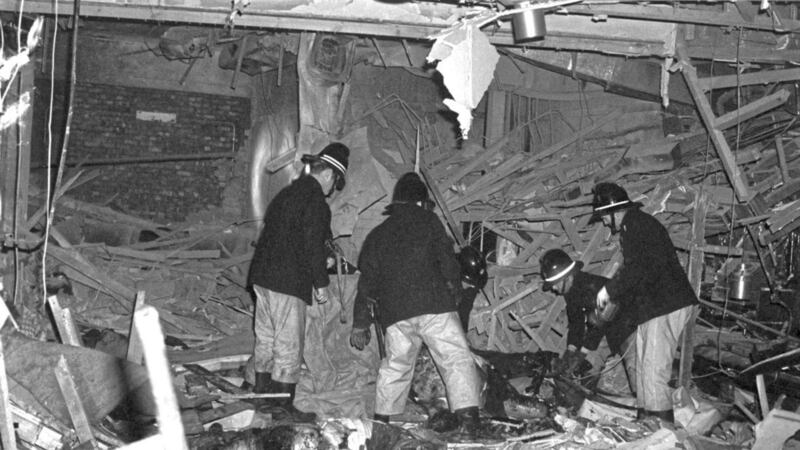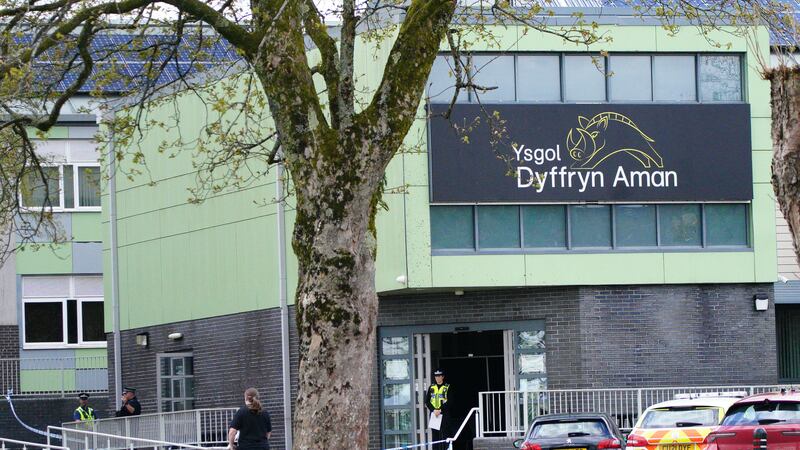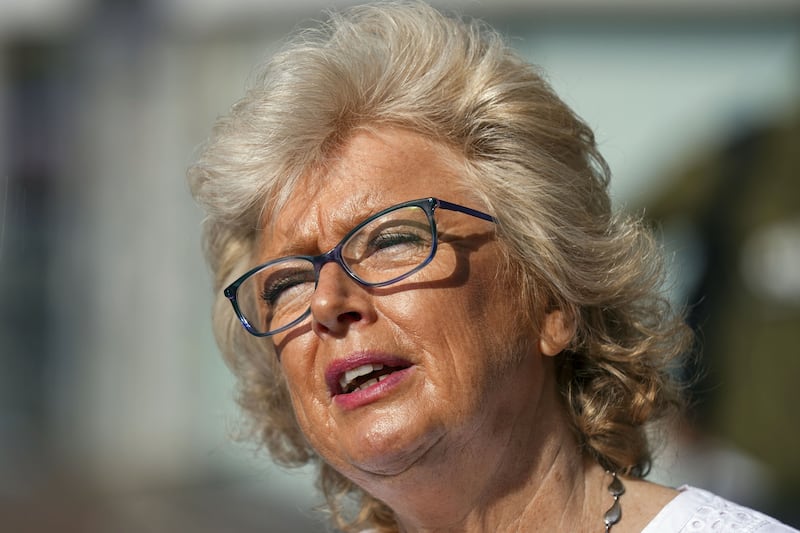No police cordon was thrown around the Mulberry Bush pub in Birmingham before an IRA bomb went off inside, despite officers responding to a coded warning in the building, an inquest has heard.
Jurors at hearings into the pub bombings on November 21 1974 were told there was no evidence of attempts to clear the premises or its immediate area, despite an 8.11pm warning call pinpointing the Rotunda office block where the pub was located.
Two blasts then ripped apart the Mulberry Bush and the nearby Tavern In The Town, between 8.15pm and 8.20pm.
The jury heard how casualties were "crawling over bodies" to escape the devastation within the Mulberry Bush, on the ground floor of the Rotunda.
On Friday, it also emerged that some of the police logs detailing the immediate responses on the night of the incident were still missing.
Inquests at Birmingham Civil Justice Centre into the 21 victims killed in the blasts got under way this week after a 44-year wait for the bereaved families.
Opening the proceedings, coroner Sir Peter Thornton QC told jurors they would hear evidence of how the two bombs ripped apart the two pubs on what was a "perfectly ordinary evening".
The devices, detonating in "massive explosions" just minutes apart inside the pubs, brought "devastation", jurors heard.
Earlier this week, jurors were told how police numbers had been cut to just 15 officers across "busy" Birmingham city centre that night.
Other officers had been drawn away to provide security for the funeral transportation arrangements of IRA bomber James McDade at Birmingham airport.
On Friday, Anthony Mole – an ex-counter terrorism police commander with 30 years' police experience – was asked about whether he had seen any evidence of a cordon.
Jurors heard how that night, young friends 16-year-old Neil Marsh, known as Tommy, and Paul Davies (17) had been walking past the Mulberry Bush when the 25lb device detonated.
Lawyer Kevin Morgan, representing Mr Marsh's family, asked: "We have not identified any evidence of a police cordon being erected at the location we have just seen?"
Mr Mole replied: "I've not seen anything within the papers."
Asked if he had seen any evidence the area was "sealed off by the police on the night of the bombing", Mr Mole replied: "I haven't seen anything that would suggest it was."
Lesley Thomas QC, asking questions on behalf of Mr Davies' family, said: "Between the warning call being given and the explosion there's a period of time – and I'm not gong to touch on that period of time – but police officers had attended the Rotunda building before the bomb went off?"
Mr Mole replied: "Correct."
Mr Thomas then asked: "And you've seen no evidence that despite the fact the police arrived at the building before the bomb went off, there was never any cordons put in place outside the building?"
He replied: "Correct."
Asked about whether there were any police logs other than two 999 calls for the Tavern and the Mulberry Bush, Mr Mole said he had not seen any, other than "statements from police officers at the time".
John Ashurst, a passenger on a bus driving past at the time of the explosion, said: "I was looking at the Mulberry Bush, and I just saw the front of it disintegrate and fly towards the bus."
Jurors also heard an account from the now deceased wife of the pub's landlord, Mary Jones, who described the detonation as "a flash of light".
"I didn't realise what had happened at first and thought I had been electrocuted," she said.
Mrs Jones added: "I must have crawled over some bodies to get out of the pub but I don't remember this at all."
Solicitor David McVeighty, now 70, was a young man catching a post-work drink in the pub with his brother Raymond and three friends that night.
He described a "bright flash" and "a very loud bang" which blew out every window in the pub.
Mr McVeighty grabbed his brother by the arm, got out through the shattered window, and they ran.
But the pair went back to the pub after a few moments to check on their friends – who were, by then, stood outside.
He said: "It seemed natural to go and help. So I went back in.
"I remember bodies. I remember the smell of burning and I remember screams and moans.
"I think I tried to pull some people or help and by then the emergency services were on the scene and a fireman told me to leave."
Becoming emotional, he told jurors: "I will never forget that evening.
"My recollections are vivid, as you can gather, and I count myself, unlike the other unfortunate people who are the subject of this inquests, as a very lucky and fortunate man."
The inquests continue.








